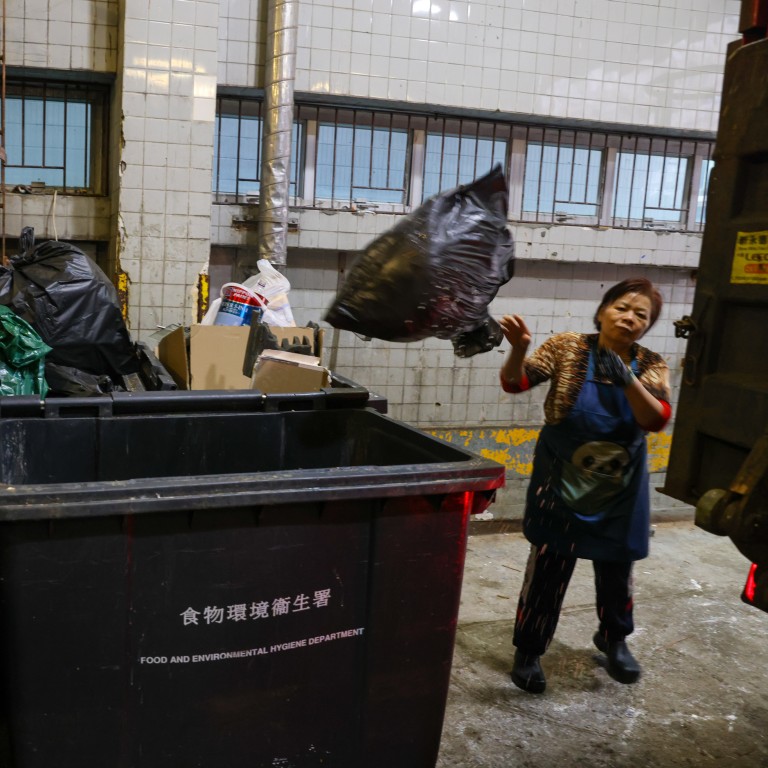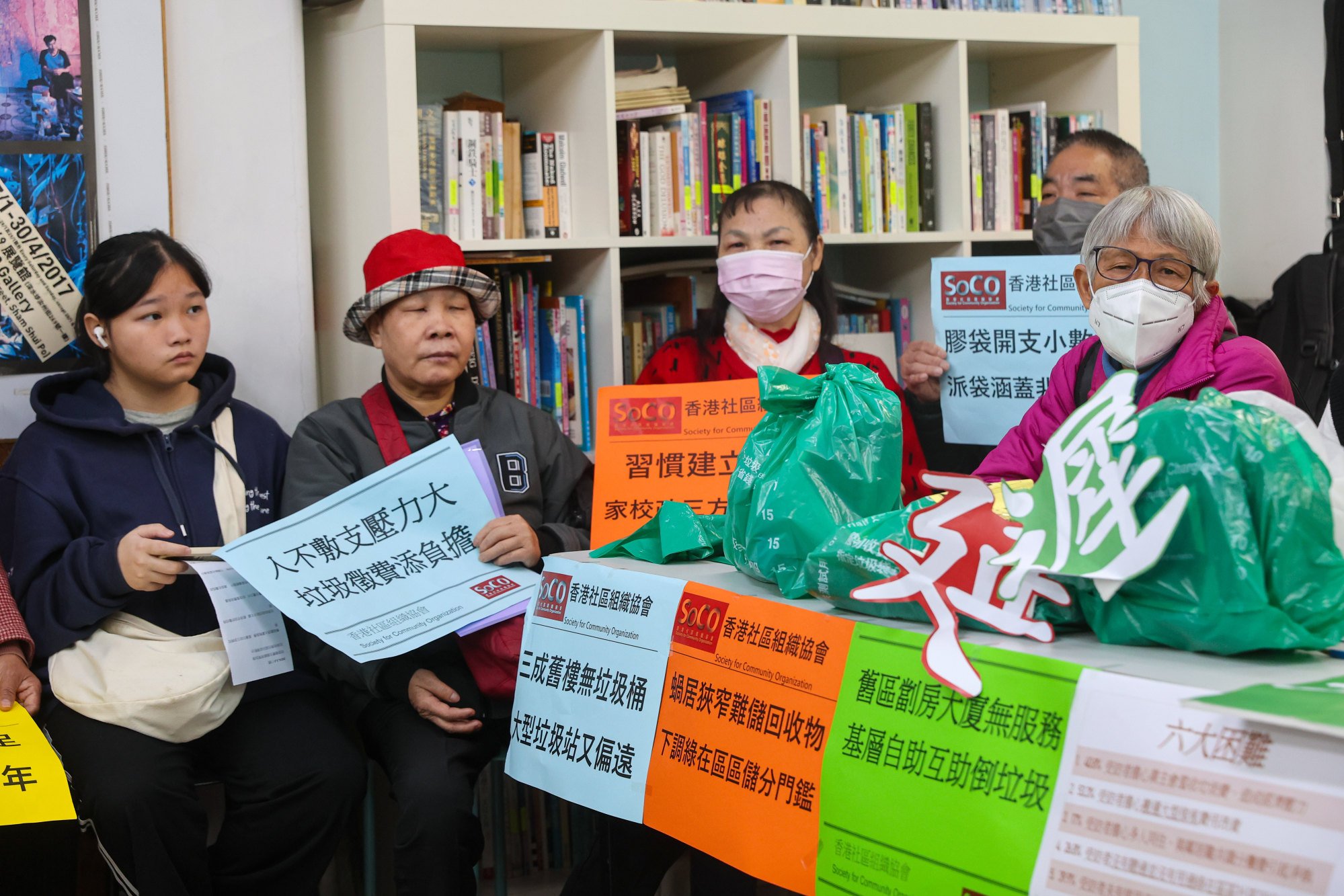
Flushing food waste down the toilet? Poor families worry about extra costs of Hong Kong’s rubbish charging scheme, call for grace period
- Society for Community Organisation poll finds quarter say they may flush food waste down toilet and more than half say will avoid taking out trash every day
- According to poll, 43 per cent of respondents call for one-year delay for certain underprivileged communities
About a quarter of respondents to a survey on Hong Kong’s coming waste charging scheme have said they may flush their food waste down the toilet, and more than half said they will avoid taking out their trash every day due to the extra costs involved.
The poll of low-income households carried out by the Society for Community Organisation (SoCO) also found that 43 per cent of respondents were in favour of giving certain underprivileged communities another year to prepare for the scheme, which is due to be implemented this August after already being delayed from April.
SoCO said on Sunday the government should provide targeted support to low-income families, for example by expanding its recycling network and giving out free bags during the transition period.
“It’s unrealistic to launch the scheme on August 1,” said SoCO deputy director Sze Lai-shan. “We doubt if the government can beef up the support measures and adequately educate the public in just a few months.”

The waste charging scheme will require residents to buy government-approved plastic bags, available in nine sizes, for 11 cents (1.4 US cents) a litre, to dispose of their trash.
The NGO surveyed more than 300 low-income families in February and found over 43 per cent said the scheme should be deferred until next year for buildings with subdivided flats and those without property maintenance companies, owners’ corporations or residents’ organisations, or the so-called three-nil buildings.
About a quarter of respondents said they would consider flushing their waste down the toilets, and more than half said they would avoid taking out the trash every day.
More than 70 per cent said they were worried about the extra financial burden, both from paying for the bags and being charged extra fees by landlords to cover the increased workload of cleaners.
Sze said SoCO expected each person to pay HK$30 to HK$40 a month for the bags. But welfare authorities have only increased the amount of Comprehensive Social Security Assistance and Old Age Allowance by HK$10 to help recipients cover the expense.
More than a third of the respondents’ buildings have no bins in common areas, so they would have to take their trash out after wrapping it in the government-designated bags. But many anticipated chaos.
Close to half of the respondents said they were worried about an increase in illegal disposal of trash in common areas such as backstairs landings and rooftops, which was already a problem in many old buildings with no lifts that posed fire safety and hygiene risks to residents.
Hong Kong food waste recycling drive trips over lack of bins, rules confusion
About 40 per cent said they were concerned that not enough rubbish bins were available on streets, after the government earlier pledged to reduce the number to encourage residents to take their garbage home. The lack of nearby disposal options could force residents to make the journey to government waste collection stations, which might be difficult for elderly people.
Sze urged the government to set up large bins in districts with more subdivided units, while efforts should be made to avoid abuse of the system. Authorities should also set aside a budget to help low-income households dispose of large or oddly sized trash to lower fire safety and hygiene risks.
The government pledged to hand out 20 plastic bags of 15 litres each every month for six months from August to residents in three-nil buildings, public rental estates and rural areas to help them adjust to the scheme.
But Sze pointed out that it was challenging to reach every tenant in subdivided units as they often had no individual postbox, and urged the government to set up collection points instead while making all underprivileged households eligible for the free bags.
The survey also found that less than 20 per cent of respondents said they would bring recyclables to the Green@community collection points. Some said they did not know the location of the facilities, and others complained their hours of operation clashed with their work schedule.
The Environmental Protection Department said it had placed large bins on the streets during certain hours for residents of “three-nil” buildings to dispose of their trash.
The department said it was negotiating with the Food and Environmental Hygiene Department (FEHD) to enhance the measure, including increasing the number of special bins that would only accept rubbish wrapped in the designated bags when the scheme came into effect. Usage will be monitored by FEHD officers.
Hong Kong school principals call for subsidies to offset costs under waste scheme
Wing Tse, a 48-year-old man who shares a 400 sq ft subdivided flat with 15 households in a three-nil building, said he anticipated a hefty cost after the waste charging scheme came into effect.
“We do not have a kitchen in the flat and have to get takeaway, but the lunchboxes are very bulky and the bags would be full very soon,” he said, adding he was unable to visit the recycling stations when they were open as he was working at the time.
“The government should enhance the support facilities before launching the scheme, otherwise they are just shifting the responsibility onto us, making our life even harder,” he said.

